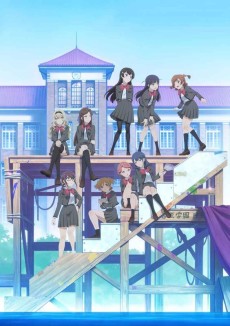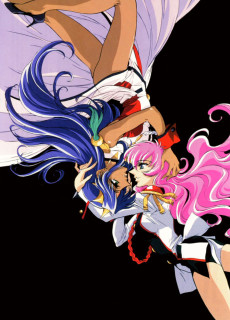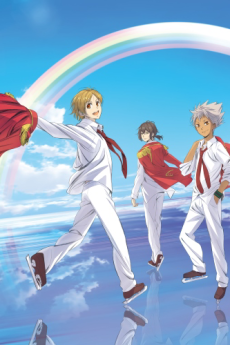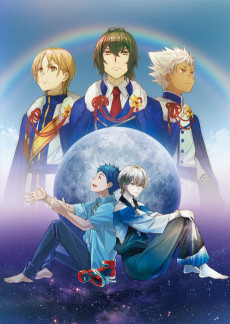SHOUJO☆KAGEKI REVUE STARLIGHT MOVIE
MOVIE
Dubbed
SOURCE
ORIGINAL
RELEASE
June 4, 2021
LENGTH
120 min
DESCRIPTION
The stage emulates life and compresses it, setting free skills learned over lifetimes in brief but dazzling displays for the amusement and judgment of others. For the performers, it is the ultimate risk, and some will rise while others must fall. Nowhere is this truer than at the Seisho Music Academy, where music, dance and real weapons all come into play in the creation of the next great Star. Karen and Hikari’s destinies have been linked since a childhood promise, but their journeys here have taken very different paths. Now, after Hikari leaves, Karen must discover who she is without her opposite, while Hikari must rediscover her own course.
(Source: Sentai Filmworks)
CAST

Nana Daiba
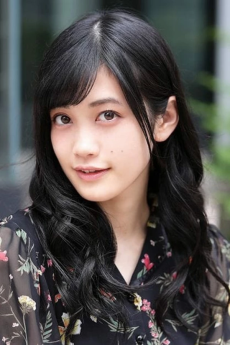
Moeka Koizumi
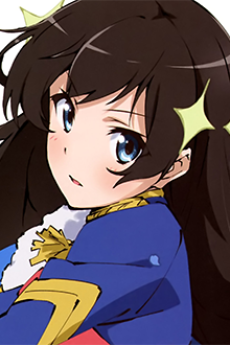
Hikari Kagura
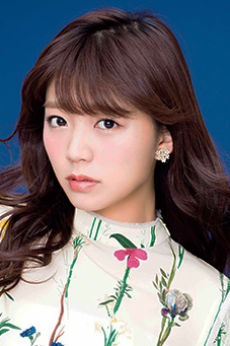
Suzuko Mimori

Karen Aijou
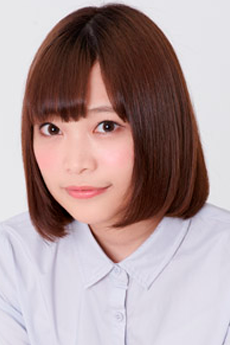
Momoyo Koyama
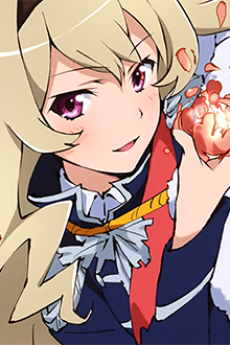
Claudine Saijou

Aina Aiba

Maya Tendou

Maho Tomita

Mahiru Tsuyuzaki
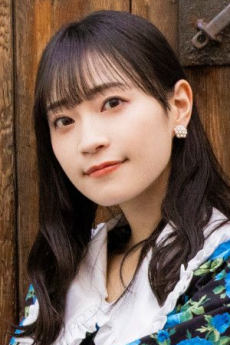
Haruki Iwata
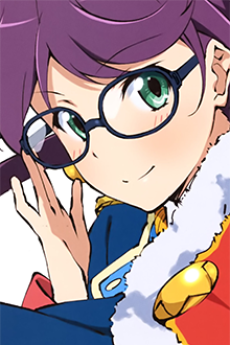
Junna Hoshimi
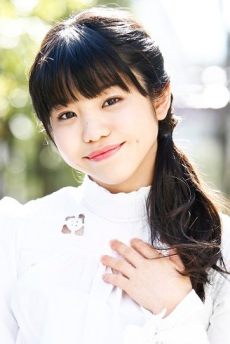
Hinata Satou

Kaoruko Hanayagi
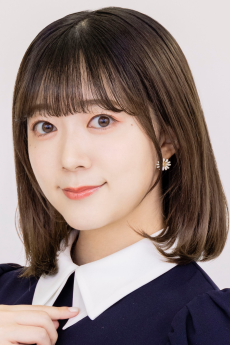
Ayasa Itou
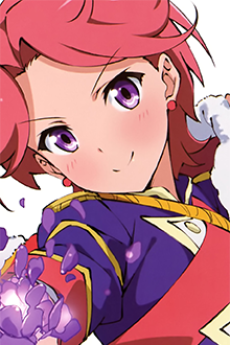
Futaba Isurugi

Teru Ikuta
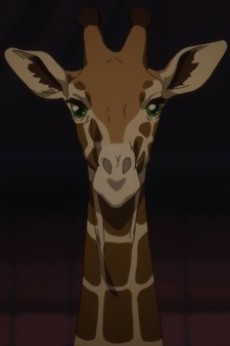
Kirin
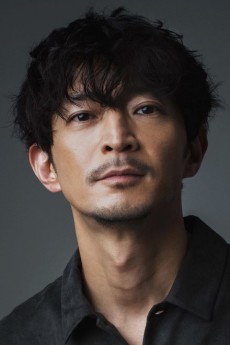
Kenjirou Tsuda

Shion Amemiya
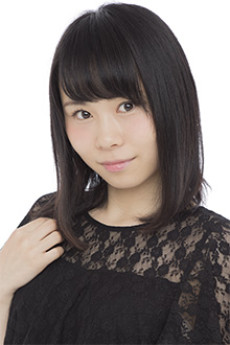
Saya Hirose

Kiriko Masai

Asuka Shinomiya
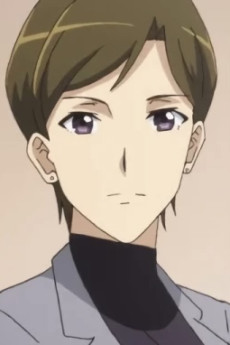
Rei Sakuragi
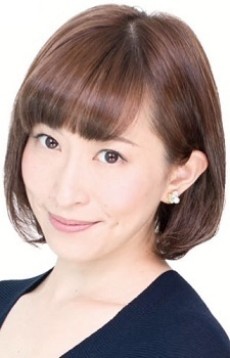
Kaori Nazuka
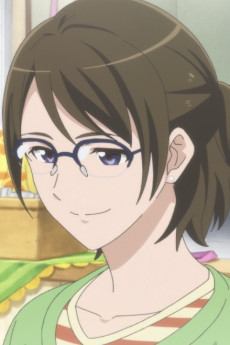
Karen no Haha

Sayaka Oohara
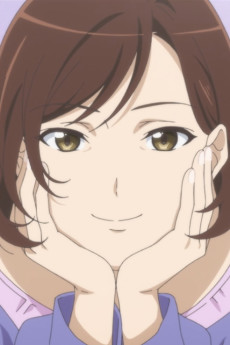
Maki
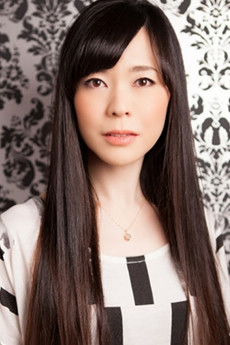
Mie Sonozaki
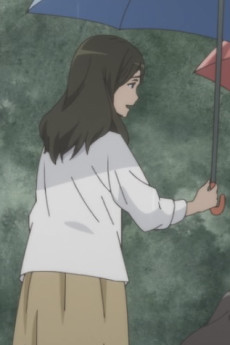
Hikari no Haha

Ayako Kawasumi
RELATED TO SHOUJO☆KAGEKI REVUE STARLIGHT MOVIE
REVIEWS

Rew
100/100Maybe the real starlight was the revues we had along the way.Continue on AniListUpdated as of third rewatch.
I must warn you now that it is pretty much impossible to discuss this movie without getting deep into spoilers; this introduction and the first part of this review will be spoiler free, so you can decide whether you want to watch the movie based on those and the score - and if you do, watch it and come back for the rest of the review.
Also, I must note that I'm obviously biased in making this review. Revue Starlight is not only my favorite anime but my favorite franchise of all time, so there was pretty much no way I wasn't going to like this movie. That said, despite anticipation building for over a year, it ran past my expectations and delivered what might legitimately be my favorite movie of all time. However, if you're not already a fan of Revue Starlight... well this movie might not be for you. Or is it?
In Japan, the movie (despite coming out on June 4th of this year) is still in theaters, meaning its been running for 31 weeks straight, being extended week after week due to its popularity. I doubt that that was simply because fans were watching it over and over and over again - there's a pretty high chance that this movie is legitimately appealing to all audiences, regardless of their previous attachment to the franchise. That said, I still think this is a movie for fans, so if you watched the original and didn't like it, I'm not sure how much this movie will be able to change that.
Last thing I want to say is that I've only seen the full movie once. It'll be a while before I can watch it again, and I had to get my thoughts out now, but I will be watching this over and over and over again. If my thoughts change or if I have more to say I'll come back and update this review, so stay tuned!
Alright, with all that out of the way, let's move onto the review:
Part 1: General Thoughts (Spoiler Free)
This movie is really good.
Really. Really. Really good.
It's pretty much everything you'd expect of the people who brought us the original Revue Starlight - a visual masterpiece with unique and epic songs, beautiful metaphors, and an attention to detail that allows for endless analysis. This movie has all that in spades, cranking up the visual storytelling to 11 and making every line, every movement, every frame count.
The revues in the movie surpass the original's by a mile; with the exception of the first, all the revues are around 10 minutes long, really diving deep into the characters relationships and their growth. It was cool seeing my multi-page analysis on the nuances of a certain character relationship basically get confirmed during their revue, all through visual storytelling. In fact, this movie does such an amazing job of staying consistent with the original's themes that I think every single piece of batshit analysis I've ever made - from the purpose of the weapons, to the choice to give X character Y colors, to the musical motifs that bind all the songs together - ALL OF THEM ARE CONFIRMED TO BE INTENTIONAL. It's not just an insane person rambling - this franchise is one of the deepest rabbit holes to jump into.
It should go without saying that every element of the original is at its best here. The characters and their relationships are fully realized, and given proper endings that coincide with the overarching theme of graduation. The music - I don't even know how to begin describing the music. It doesn't sound like any other soundtrack I've ever heard, even the original's, and each song is an entire novel's worth of story telling in itself. The animation is stunning, the pacing is relentless, the storyline is tragic and heartbreaking but happy and hopeful all the same.
By the end of the movie, it truly did feel like the series was over, much to my dismay. But it was the best ending it could've had.
In terms of "flaws," there's really only a couple things. First, the action isn't the most creatively choreographed. For someone like me, this is made up for by how well the action is shot, and all the creative ways they present the action - you know what I mean if you watched the original. Basically, even though most of the action is basic swords clashing or arrows firing, it's the environments, the cinematography, the style that makes the action an exhilarating experience to behold. However, there are many people who don't care about all that... and that's fine. The action is still good here don't get me wrong - the first fight scene is amazing - it's just that the fight scenes are definitely defined by the visuals and emotion more than the action itself.
The only other "flaw" I can really think of, if you even want to call it that, is that the movie spends a lot of time in flashbacks. I personally hate flashbacks, specifically when they're done poorly. I think it's done pretty well here, but if you're just coming for the revues, or if you don't care about Karen at all, it's not the most endearing. That said, I do like Karen - I love Karen in fact. So I loved all of this.
With that, my ability to talk about the movie without spoilers is exhausted. I really hope that if you do end up watching this film, even if you weren't familiar with or a fan of the original franchise, that you can get at least something from this film. It's overflowing with love and care from everyone involved - you can see and hear the passion that went into making this movie. It's clear why the movie wasn't given a special title like "Roadshow" or "Graduation" - this is Revue Starlight. It is not the sequel to the series - it is simply the last part. The series was never complete until the movie came out, and only now it may rest.
Part 2: The Characters (Spoilers)
Like I said in part 1, the characters are at their best here. I was somewhat worried that after the very satisfying ending the original series had, they wouldn't be able to justify the drastic shift into the storyline of the movie. Nana turning "evil again" could've invalidated one of my favorite scenes from the original, in which Junna shows Nana the value of moving forward instead of being stuck in the past. However, not only does the movie not undo any of those scenes - it basically just makes it clear that Nana turning again was an inevitability. They don't even really justify it because its played out as if this was always going to happen. Nana doesn't feel like a different character because she isn't - with graduation approaching, it makes perfect sense that it would be Nana to give the final choices to her fellow stars: either let yourself die on the stage or watch everyone drift apart.
She knows that if everyone decides to continue pursuing the stage, they're all be separated - but if they end their paths now, they can stay together forever. And the Revue of Annihilation is pretty much Nana putting that idea center stage - by showing that she is still strong enough to defeat six stage girls entirely on her own, she is showing the other characters their unified weakness: their lack of belief in the future. The movie begins with all the characters explaining their goals, and pretty much all of them have reservations about how far they can actually go.
Nana isn't really fighting to keep her replays anymore; rather, she's fighting to make sure that if her friends choose to pursue their starlight, they won't fail. And in the state they are at the beginning of that first Revue, that's exactly where they are. With the exception of Maya (who coincidentally is the only stage girl to not be defeated in the Revue of Annihilation), all are unsure of their future, unsure of their ability, and that lack of confidence will surely lead to their failures. Nana won't allow them to fail, and if that means defeating them and killing their stage, so be it.
This is further explored in her relationship (and revue) with Junna. Junna is someone who has always looked at others when trying to achieve her goals. She's always taking notes on those she sees as more skilled than her, and she's constantly quoting great writers and philosophers. Junna is defined by others, and Nana wants to change that. Their revue probably has the single best piece of visual storytelling I've ever seen, which I'll dive more into in part 3 of this review, but for now we can just say that Junna proves to Nana (and to herself) that her method isn't bad. That learning from the greats isn't stunting her own growth, and that she can still reach her goal with her reliance on others to make up for what she lacks.
In the original series, the people she looked up to were Claudine and Maya, because to her they were on a whole other level - and in some ways, that remains true in the movie. Maya is pretty much untouchable, but as is explored in her revue, this has made her an oddball in the group. She cannot exist without the stage, and she knows this fact, so there isn't even a question about it - Maya won't let herself die on stage, that's not an option for her.
Claudine on the other hand is caught between returning to France and staying to continue challenging Maya. Claudine has always been defined by "second place," and that fact is exemplified here. Her belief that she and Maya are rivals is seemingly the one thing keeping her afloat, and the question is just whether or not that is strong enough to keep her dreams of being a stage girl alive. Their revue together explores Claudine's role not only as a stage girl but also in defining what makes Maya a stage girl. They are nothing without the other, but both must evolve from that fact if they are to achieve their dreams after graduation.
Much like Claudine, Kaoruko is caught between returning and moving forward. She was always the most... confusing character to me in the original series - I didn't quite understand her purpose outside of being a defining part of Futaba's character. Here, it's made clear - Kaoruko is acceptance. If it were up to Kaoruko, she'd gladly let her stage die, but she wants it to be on her terms. She's the most angry about losing the original Revues because its a red mark on her record, and she spends her time in the movie trying to prove that she's still worth something.
Like in the past, this is mostly by making Futaba chase her... but this time is different. Futaba has grown, and she's become passionate about something. Before, Futaba was the weakest of the nine, but she was never angry about that - her life was defined by assisting Kaoruko, and by losing to her she likely felt she had done her job. But she has split off now, and if that means leaving Kaoruko behind... well Futaba will make that decision. She'll do it if it means that Kaoruko will have inspiration to meet her, and they can both find their dreams together - as equals, as friends, as a couple.
That leaves the main trio - Mahiru, Hikari, and of course, Karen.
Mahiru has always been an interesting character because she is someone defined by others. Not in the way Claudine needs to be Maya's rival or the way Kaoruko needs a Futaba to rely on - Mahiru isn't defined by a single person. She initially joined Seisho inspired by her grandmother, and her time spent on stage was defined by her - until she meets Karen. Karen to Mahiru isn't just an object of affection - Karen is Mahiru's way of feeling useful. She's always felt that she didn't belong in Seisho, that she herself wasn't a particularly strong actor or singer or dancer, and the original series features her learning to somewhat believe in herself.
Mahiru is still defined by Karen this time around, but rather than it being out of an insistence to be useful, its out of pure love. Mahiru doesn't even share that many scene with Karen, rather, it's through her interactions with Hikari that she proves her loyalty. Mahiru knows Hikari is destined to meet with Karen, but in that even she wants to make sure that Hikari truly deserves to meet Karen at the top of the stage.
That is because, to her, Hikari ran. Hikari was scared and she ran.
Talking about Hikari and Karen is so complicated because their stories are so intertwined.
Hikari ran because she feared that she wouldn't be good enough to meet everyone else on stage. But as the movie shows us, Karen only ever pursued the stage because of Hikari. But Karen's insistence on keeping her promise with Hikari, one that was made out of the fear of Karen relying too much on Hikari (and subsequently backfired), is the reason Hikari never knew how close their relationship was - or rather that Karen could never address it. It's really complex and I definitely think it is their relationship and these characters that I'll especially need a second watch through to fully understand.
For now, I'll stick with the idea that Hikari is spending the movie realizing that she has doomed Karen, and trying to fix her mistake before its too late. But she is too late. I'll explore this more in part 4, but Karen dies. The stage girl Karen dies. Because the stage girl Karen relied on Hikari, looked up to Hikari, pursued the stage in hopes to meet Hikari. And in doing so, Karen stopped being defined by herself. There's even seemingly throwaway lines like "Karen doesn't seem like herself on stage" that really hammer this idea home. The stage girl Karen was a hollow vessel, built on fate, and only in her death could Karen evolve.
The simple overarching truth is... all the characters had to evolve. Like Nana's replays, Seisho was a safe place, their friends were a safe place, but those safe places were where they would die if they didn't move on, if they didn't pursue their dreams, if they didn't graduate.
Part 3: The Revues (Spoilers)
Oh my god the revues. From the music to the visuals to the emotions, they are so good and I spent probably the next hour after the movie ended stunned by every single one. Each one is so unique, both from the other revues as well as in terms of anime as a whole.
Revue of Annihilation (titled Revue of Killing Everyone in the subs I watched) came out of nowhere and took me by surprise. Historically, the revues were always one versus one, with the one exception that saw us seeing a two versus two revue. Here, we have a revue that is one versus six. Like I said before, this was all done to show how Nana knows the fear in the hearts of the other stage girls. That is why Karen and Hikari are absent - their goals are unclear - it isn't just a matter of fear, it's a matter of not knowing what comes next.
Visually speaking the Revue of Annihilation is pretty tame, despite happening on a moving train stage and having insane cinematography to show the fight in full. This is a perfect decision as the revue pretty much comes out of nowhere and eases the audience back into the revue format without immediately overwhelming us visually. It's exciting, exhilarating, and a little bit terrifying. I was already at the edge of my seat and the movie had just gotten started. Oh and this moment?
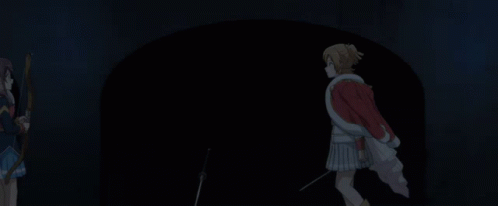
Yeah this moment was raw as hell.
And oh my, wi(l)d-screen baroque is probably my favorite track from the movie, perhaps from the entire franchise. It's groovy, it incorporates so many strange elements, and it paints a picture of the battle without ever having to see it.
The ending of the revue is jaw-dropping, as well. I don't think Revue Starlight fans will be too surprised to see that there's blood in this movie, but this amount, and out of nowhere - Junna and Kaoruko literally die. it's pretty insane. Revue of Annihilation makes it clear what the movie going to be, narratively, thematically, tonally, and visually, all in a short 5 minute segment. An absolute masterpiece of a revue. And it's not even my favorite one.
Revue of Malice followed next, and it's the final chapter in the Futakao relationship. Kaoruko spends the revue trying to run away, but always being above Futaba. After an initial scene featuring a cameo from Claudine, Kaoruko and Futaba clash weapons as they rise on a staircase, with Kaoruko always a few steps above, leaving Futaba to chase her. Then, they have a conversation in what appears to be a fancy bar or casino, with Kaoruko leading with questions and revelations. This all escalates into the jeep battle (which is insanely cool), and Kaoruko falling just to be caught, like always, by Futaba.

I explain it in full to show that Kaoruko is still someone that Futaba looks up to - Futaba doesn't really state this directly, because, and this is a common theme for the revues, the visuals do enough for the audience to tell us that. This revue in particular does a massive amount of heavy lifting with its visuals, because while Kaoruko is the one talking and doing, its seemingly Futaba that is in control of the stage.
Futaba is no longer looking out for Kaoruko because she believes Kaourko can take her to her dreams - she's protecting Kaoruko because she loves her. Futaba isn't scared of her own ability - she's scared of Kaoruko failing without her. When Futaba gives Kaoruko her motorcycle and asks her to take care of it - she's asking Kaoruko to take care of herself.
The visuals are a great mix of Kaoruko and Futaba's thematic designs, showing us power in a modern sense, not in a Kyoto castle like in the original series, but in the modern equivalent. The song takes this motif as well, moving from the traditional japanese stylings of the two original songs of the Futakao revue, and adding modern twists with new instruments and rhythmic structure. One of the most visually stunning revues in the franchise, and the perfect ending for the two characters whos lives were intertwined.
After Revue of Malice is Revue of Competition, between Mahiru and Hikari. Mahiru and Hikari have always had such a unique relationship, bound by their connections to Karen. And unlike Revue of Malice and the revues to follow, this is not a joint production - Mahiru is running the show, and Hikari is nothing but a participant.

Because Mahiru is in full control, it's strange to see that she's still competing with Hikari, but this brings us back to Mahriu's character: Mahiru is someone defined by others, so it doesn't matter how strong she is or how much she can shine on her own. Hikari can't fight back because she knows she'll lose, and she knows that Mahiru is right. Hikari can't fight because she's scared, and Mahiru wants to prove that.
The horror sequence caught me off guard, but its there to show the fear in Hikari and Mahiru's need for Hikari to be her best for Karen's sake. It was extremely entertaining, and the revue song just added to the creepy tone of the entire sequence. The dissonance in the notes, in her voice, in the rhythm. Visually speaking, this revue has insane transitions and threw my emotions around all over the place. Mahiru has always been borderline unstable, and what's amazing is that this revue moves her psyche closer and closer to that line without ever surpassing it.
Next was the Revue of Hunting... and man. This revue is absolutely insane. The revue is the full realization of all the themes surrounding Junna and Nana's relationship: Junna has always represented the possibilities of the future, and Nana has always represented the safety of the past. Junna is someone defined by failure, by following others, by having to work for happiness - and Nana is someone defined by succeeding, by taking control, and taking what one has and finding the value in that.
Nana's weapons, two swords, have always represented both the two sides of Nana's personality, and her insistence to spread herself thin in order to have more control. On the other hand, Junna's weapon, a bow, represents how she can always see her goal but never reach it - no matter how strong her aim, it will be her arrow that meets her dreams, not her.

This is why it's so impactful for Nana to break Junna's bow and give her one of her swords. Nana wants Junna to succeed on her own, to stop relying on others, and to Nana that is the only way Junna can survive - and to Nana, if Junna must rely on someone, it should be Nana and Nana alone. Nana walks away after passing Junna her sword, confident that Junna will either die now or pick up the sword and join Nana. But, to Nana's surprise, Junna makes the sword her own, stealing Nana's shine and once again proving that she will make us of others to strengthen herself. It is no longer Nana's sword - it is Junna's. And after so long of having to watch from the back as her arrow flew and met her target, she finally has the weapon to meet it herself.
That's just one moment from this insane revue, one that finds both characters sobbing and eventually splitting off to find their own futures. I could probably talk for hours about this revue alone, since it is Junna and Nana that I've studied the most from the original series, and I like I mentioned before this movie is just the characters being fully realized. But I'll spare you that since this review is already insanely long.
The music and visuals of this revue are absolutely wild. The text saying "star," the way Moepii's voice cracks, the photographs and the way the one of the Nana and Junna doesn't split apart. I'm confident that even without dialogue this revue would've broken my heart.
The penultimate revue (if you want to call the final song a revue) is between Claudine and Maya, the Revue of Souls, a matchup fans of have waited for for years. These two, like I mentioned before, are defined by each other. Claudine must get better to challenge Maya, and Maya must get better to stay above Claudine. That's their dynamic, and it always has been.
This revue is no different, but really deeply explores what that dynamic actually means. And what they've settled on... is wonderfully unexpected. The idea that Maya is God and Claudine is Satan is something I've never even considered, but that's pretty much all this revue is, and that part isn't subtle. Unlike everyone else, it appears there's no other options for these two except for pursuing the stage. Maya even goes as far to say that there is no regular Maya - only the stage girl.

What's probably most impressive about their revue is the visuals, showing them in a plethora of different stage plays and stories, showing that both will rise to any role thrown at them. There's so many sections that are just... amazing. Visual masterpieces. This is also the longest revue in the movie by a fair amount, showing just how stubborn both sides are - while Maya must continue to win, Claudine has made up her mind to not lose. This dynamic gives us a battle of gods one to remember.
Musically speaking, this Revue obviously takes a lot from Pride and Arrogance, but never feels like its just a rehash of that original revue. In the original series, we never really got to see a true Claudine revue, so her taking control here to change what should be an easy victory for Maya - well, it's Claudine challenging fate itself.
The last revue, which is less of a revue and more of a final scene, is titled simply: The Final Lines. It's the final confrontation between Hikari and Karen, and the follow-up to their confrontation at the beginning of the film. It is here that we get the fourth-wall break akin to the one from the original, where Karen and Hikari address the audience directly. And then Karen dies.
And then she's reborn.
The entire franchise has been leading up to this moment. In the original series, a common trope was for the characters to reveal their rebirths - from unambitious mannequins to stage girls. Here, that rebirth is visually shown to be the transition from students to adults, but nobody actually died. And that's because, for them, there was never a huge difference between their lives as stage girls now and in the future, other than how they themselves saw it. But for Karen...
Part 4: Themes and the Ending (Spoilers) ... it's different.
The inclusion of the scenes of Karen's backstory can be somewhat easy to forget, since it's very easy to focus on the visual feasts to be found in even just one of the revues. But it was equally important to show Karen's growth, because, despite not appearing in any of the five revues prior, this is Karen's movie.
Kaoruko pursues the stage for her legacy. Futaba pursues the stage for her love. Mahiru pursues the stage for her kinship. Junna pursues the stage for her future. Nana pursues the stage for her happiness. Claudine pursues the stage for her strength. Maya pursues the stage for her life.
HIkari pursues the stage because it is her fate. One she has roped Karen into. So Karen pursued her stage for Hikari.
But that wasn't Karen. In their backstory, and shown in the series, Karen was seemingly always apathetic before meeting Hikari. But we see that, afterwards, even without HIkar,i Karen is capable of making friends (albeit with never as deep of a relationship). But she always had the promise, that fate, that causes her to change whilst performing. The Karen we see is not the real one, it is simply the Karen of the stage.
But that doesn't mean there can't be a stage girl Karen. It just means that she needs to be reborn, to let her stage die, and to fly from the ashes to become the true Karen Aijo, the true stage girl that was sought out by the audience for the past 3 years. This movie really has no reason to exist; again, the original series was very complete in its own right. But one of the major themes of the original series was the audience played a role in the story, too, and we the audience have willed this film into existence.

The themes of this movie likely span much further than that, but in terms of Karen's story, and perhaps the stories of all the stage girls, I think this movie has finally done it. This movie doesn't say anything directly, but its message is clear. So finally... I understand.

SpookSpark
100/100Aijo Karen the protagonist, Aijo Karen the humanContinue on AniListThis is less a review and more a commentary on the main themes and metaphors of the movie. As such, it will contain spoilers.
All the world’s a stage,
And all the men and women merely players;
They have their exits and their entrances;
And one man in his time plays many parts.When Revue Starlight aired and ended in 2018, it was common to see people criticize the show for having a frankly rather plain protagonist in the form of Karen. I too shared this opinion, but also understood why it was so: Revue Starlight was first and foremost an allegorical story meant as a critique of the hyper-competitive nature of Takarazuka theatre and its self-destructive condition, as well as a «meta» commentary on the relationship between an audience who wishes to see a tragedy unfold and the lives of the characters that have to act it out. Karen and her story are therefore little more than a vehicle for these ideas and their execution: Karen eventually destroys the tragic competitive system and acts out Starlight with Hikari as she had dreamed, everyone is happy, and her story is over.
So, how do you follow up on a finished story?

Whilst watching the first revue of the film I was reminded of the words a professor of mine said: "A book is dead as long as it is just sitting on a shelf. It only becomes alive when it is read." A common metaphor when it comes to thinking about stories and texts, it is often used to refer to the way a text is only relevant when someone is interacting with it. The Revue Starlight movie takes this to a literal extreme: The narrative finished with the TV show and Karen’s story has been told, but what about the others? Those who did not have a protagonist role, and whose lives still hold stories to tell? With the end of Revue Starlight, Nana sees their death, their fading into obscurity as the audience moves on.

The «corpses» are framed as packaged action figures, an extreme objectification: They are toys for the audience

And so the girls take up their weapons once again, to become the top star, to become the protagonist and have their lives, their stories, be told. The giraffe, representing the audience, is now food, the attention of the fans of the show fueling the creation of a sequel in order to quench their thirst, and giving the girls a new chance to exist.
The second half of the movie is revue after revue, clash after clash. But these fights are not between the girls, but rather between the presupositions each girl makes of the other, which, in a meta sense, are the archetypes that the TV show had given to each of them: Maya is the ultimate elite, Claudine her eternal rival, Mahiru the jealous enamoured, etc. They are the roles that Revue Starlight and, in a way, the audience, had given them.

And in the process of fighting, the girls lay bare their worst possessive feelings towards each other. Kaoruko will not accept a Futaba that pretends to continue her studies away from her, because it does not conform to the way she believes Futaba must be, and neither will Nana accept a Junna who wishes to momentarily leave the stage, because that is not the Junna she fell in love with.

But relationships are not built on mutual unconditional devotion, they are built on the recognition of the autonomy, the agency, of the other. A relationship that is built in mutual subservience and codepence is destined to shatter. And the film understands this, with every revue culminating in both girls accepting each other, in all their faults and beliefs and emotions, in all their humanity, and learning that you must let go of your own ideas of how someone should act and exist in order to truly love them. And in learning to let go, the bonds they share become ironclad, in a way reminiscent to how Liz and the Blue Bird did four years ago.


Mahiru understands this from the very beginning, her acting as the «yandere» having been just an act. Even though she may love Karen, she has found both a passion for theatre that goes beyond her and a newfound love for her «rival», and is able to let her go with her blessing.
But what about Karen, our protagonist, the one whose story already ended? All the way throughout the movie, Karen searches for Hikari along the train tracks, and we are constantly regaled with scenes of her past, from her meeting Hikari as a little kid to her discovery of her passion for theatre and deciding to apply for Seisho. But when she finally finds Hikari, she dies. "I have nothing" she cries, as she collapses like a puppet whose strings have been cut, and the frame shifts towards an image of a tomato, the audience’s attention, exploding. Her story was over the second the TV series ended and, as she was only a vehicle for the thematic statement of the show, she has nothing else, not even the attention of an audience who found her shallow and even boring.

But Hikari won’t let her die, revealing that the reason she left her was because she was afraid of becoming her fan, of forcing her own ideas of how and what she should be in her as the other girls had done for their respective pairs. And through her wishes for rebirth, she lets her down into the forge once again.

Karen’s figure shifts into that of the T-sign representing the Position Zero of the stage, the top star, because that’s all she was in respect to the TV show’s intention. But this is not true, as the film has shown us: We have seen episodes of her entire life, what Hikari meant to her, what theatre meant to her, episodes of her life with unnamed friends, unnamed family members, the people that had been with her through her life. And now, we no longer know Karen the thematic vehicle, we know Karen the person, and we want her back. Little Karen holds the tomato.


"You are me, I am you/The past is the future, the future is now"
And now the rocket that propels the train burns through all her past selves, her memories, her life. But these are not the flames of destruction, they are the flames of rebith, of passion. And that is what the movie claims we as humans are, our pasts, presents, and futures, the people we love and have spent our lives with, all our emotions, the passions, the loves and hates, the drive to go forward. Burning and condensing all that makes up Karen, the train propels forward until it comes to a stop, and Karen the human is born.
And the new Karen knows, she knows that she is not someone who has nothing, because she is no longer a narrative device, but a true human with all that makes up her identity. She sees Hikari and is equally entranced and terrified by her, by the person who brought about all the passions and triumphs of her life. No longer beholden to the brutal laws of the revue, of the audience, her weapon shatters, and Hikari pierces her with her own in a final excisement of her existence as nothing but the Protagonist, the Top Star, as Position Zero icons fly away from her body as blood.


And the Tokyo Tower, the symbol of their promise, breaks in half and flies away, falling to the Position Zero, the true Position Zero, the beginning of her life as a human, and not her identity as the Top Star.

And the girls cast away their capes, the symbols of their belonging to the system of the revue. For they too, having recognized each other as autonomous humans, in all their passions, have attained humanity, and are no longer beholden to the wishes of the audience. They are themselves.

Karen stands upon the broken train tracks that had brought her this far. "We’ve… acted it all out. Revue Starlight. Right now, I might be the emptiest in the world." Hikari hands her the audience’s tomato, "Then, go on and find it," she says, "Your next stage. Your next role." Karen is empty now, truly empty, but not in the negative sense. She’s a jar yet to be filled with quenching water, a flowerpot whose seeds have yet to flower, The Fool who will embark in a journey to The World. Revue Starlight is over, but in having learned to love each other and all that makes up their identities, the girls of the 99th class will go on.
So go on.


TheAnimeBingeWatcher
100/100Revue Starlight is dead: long live Revue Starlight.Continue on AniListWhen I first heard there was gonna be a Revue Starlight sequel movie, my reaction was, “Why?”
Here’s the thing: Revue Starlight is one of my favorite anime of all time. It’s a truly one-of-a-kind showstopper, melding symbolism-drenched storytelling, breathtaking battle sequences, and a beautifully realized cast of characters into the ultimate exploration of theater and what it means to be a drama kid. No anime so perfectly understands the struggle, the meaning, and the metatextual wonder of theater as Revue Starlight. But it’s also in large part about the fact that stories shouldn’t go on forever. Trying to recapture the same glimmer over and over again is only going to lead to diminishing returns, stagnating your craft and life alike. In order for art and people to survive, we must move forward; curtains must close on one play in order to make room for another. And in just twelve episodes, Revue Starlight closed its curtain expertly. It wrapped up all loose ends, fully explored all its themes, and ended its run with a complete thesis that said everything it needed to say. It was about as perfect as closure can possibly get.
So what’s the point of doing a sequel? What’s there even to continue when it feels like everything’s been brought to a close with no room for elaboration? Why undo the ending for a story that was all about why stories need endings in the first place? There’s nothing to continue here, and even if there were, continuing at all would be contrary to the point this franchise was trying to make in the first place. Surely, even a good sequel to Revue Starlight could only ever feel like a step back at best, and an outright betrayal at worst. Why bother trying at all when it seems doomed to be a losing prospect from its very premise?
And then I actually watched it.
And folks, I could not be happier to tell you I was completely wrong.
The Revue Starlight movie is one of the most astounding things I’ve ever seen. The best way I can describe it is a cinematic crossroads where Adolescence of Utena, End of Evangelion, and Liz and the Blue Bird all crossed blades, spilling each other’s blood and painting the earth in its rainbow color. It’s at once a staggering deconstruction of itself and a reconstruction into something entirely the same, a study in the complexity and maturation of humanity and interpersonal relationships, a dizzying spectacle of sight and sound that would put most professional opera to shame, and a climactic battle cry that made all my doubts melt away like ice before a roaring inferno. It embraces its own seeming superfluity and turns that into its greatest weapon, burning itself, its characters, and its very franchise to the ground so that a new phoenix may burst forth from the ashes. Hours later, I’m still reeling from the sheer experience of watching it all unfold. I struggle to find the words to do it justice, to grasp my reeling thoughts and re-arrange them into something comprehensive that isn’t just screaming and flailing with a mixture of awe and delight. This. Movie. Fucking. OWNS.
Sadly, to talk about why it owns so much, I can’t remain fully spoiler-free in this review. This movie is not something one can talk about without at least hinting at some of its biggest surprises and unexpected left turns. But I’ll do my best to avoid specifics wherever possible, and if anything I’ve said thus far has convinced you to give this movie a shot, then I suggest you turn back now. You deserve to experience it as unspoiled as possible. If you need a little more convincing, though... then read on.
The smartest thing the Revue Starlight movie does is make the question of its existence the central question of its story: where do we go from here? The characters have passed the auditions intact, performed their new and improved version of Starlight, and come into their own as young actors. So what happens now? Where do Karen, Hikari, Mahiru, Nana, and all the rest continue their journey on the stage, now that external forces are no longer prompting their forward motion? Life, after all, continues ever on past past the end of a play; the auditions may be over, but with graduation around the corner, a new chapter in their lives will soon begin. And none of them are quite sure what new stage they’re going to stand on when that time comes. Hikari’s even gone back to London to continue training at her old school, leaving Karen once again unsure how to move forward without her own shining star to guide her. It’s a beautiful way to weave that metatextual uncertainty into the fabric of the movie itself, something this franchise has always been masterful at. The curtain has fallen on one show, but a curtain is about to rise, whether the girls are ready for it or not.
And indeed, it’s only a matter of time before this existential concern becomes the bedrock for a new series of battle revues. Only these aren’t auditions for Top Star like they were in the show; no, they’re something much more complex, much more intense, and much more challenging to the very core of who these people are. I’ll avoid spoiling the specifics of how and why these new revues come about, but suffice to say, this is no longer a tournament for some far-off prize that only one lucky main actor can win. This new stage is a stage for all nine girls to sweat, bleed and die upon, fully coming to terms with themselves, and their relationships with each other, so they can grow past their doubts and become fully actualized, fully self-confident young women. Karen was the protagonist of the show, and she still technically is here, but more than anything, this movie is a story of each and every girl becoming the protagonist of their own life, finding what drives them forward, discovering what path they wish to take, and embracing the way forward with all the drama, exertion, and over-the-top zeal that comes with the territory of being a theater kid.
In other words, this movie is about breaking free of the confines of who you were and charging headfirst into the person you wish to become, fears be damned. And in true Revue Starlight fashion, the metatext of breaking free of the story itself is part and parcel of that same layered metaphor. Just as Nana once trapped the girls in an eternal rerun of their golden years, just as the play of Starlight was a prison that had to be rewritten for the characters to move forward, the stasis that Revue Starlight must now overcome is the stasis of its own perpetuation. As long as this franchise continues, the movie seems to argue, these girls will forever be caught in cycles of torment and struggle, forever performing bloody plays for an audience drunk on the spectacle of it all. It’s a feature-length expansion of that chilling moment where the giraffe turns to the audience in the final episode, condemning us as complicit in the continued suffering of its characters and world. For the characters of Revue Starlight to truly escape the death knell of stasis, then Revue Starlight itself must be destroyed, freeing them from this cyclical story and delivering fate into their own hands. Only then, at long last, can the curtain rise on the next act.
What we have on our hands here, then, is nothing more or less than Revue Starlight enacting its own apocalypse. It’s a two-hour cinematic self-sacrifice that seeks to send itself out with as beautiful a blaze of glory as it can possibly muster, confident in the knowledge that what made it so valuable will survive long after the curtains come down and the stage is swept clean of broken glass. Characters clash and fall apart, but promise to never truly leave each other. Iconic symbols from the show crumble and shatter, remixing in an endless array of new possibility. It destroys the fabric of its very existence, only to pull something even more precious from the wreckage it leaves behind. Even the in-universe world feels bigger than ever, with more focus on background characters, more locations outside the school, and flashbacks that flesh out Karen and Hikari’s childhood friendship, back when they were still just ordinary kids outside the pressure cooker of the world of theatre. Watching this movie is like watching the foundations of Revue Starlight itself come undone, revealing everything beyond its narrow stage and encouraging us to leave the audience at last. To call it breathtaking would be an understatement; I still don’t know if I’ve fully remembered how to breathe.
And the revues themselves! God, the fucking revues! Free of the tournament bracket, the musical battles that dominate this movie’s second half are able to break free of their formulas and deliver this franchise’s most stupefying spectacles of all time. Characters you’ve never seen fight before! Characters you’ve wanted to see fight for ages! Interpersonal conflict that builds off what the show established and strips it down to its core! The raw emotions of each match-up, the way previously established relationships are tested and laid bare with both participants’ worst qualities fully unleashed... it’s like you’re meeting everyone for the first time all over again, understanding them more deeply than you even did over those past twelve episodes. And that’s not even taking into account just how fucking gorgeous they all are. The show’s uneven production schedule lead to some of its later duels lacking the polish they needed to truly shine, but here? Every battle is a feast of sakuga and symbolism. Every fight bursts with jaw-dropping imagery. I could spend hours poring over all the best moments from each fight, the moments that made me screech and howl and gasp and cheer. And if you were as disappointed as I was that Claudine and Maya’s revue in the show was too compromised by production issues to really do them justice as the queens of their class, then hooooooooly fucking shit, you need to watch this movie as soon as possible. That’s all I’ll say to avoid spoiling any more, but trust me: you will not be disappointed.
Believe it or not, I could keep going. I could discuss how masterfully the flashbacks are integrated into the overall structure, the brilliant way the giraffe is thematically repurposed, the absolutely mind-blowing final act. But I think it’s best I take this franchise’s advice and let the curtain fall before things drag on past their natural stopping point. Revue Starlight is truly over now; this movie is as definitive a finale as that last Evangelion movie, a stopping point that ensures no possible continuation. It’s a swan song for a franchise I didn’t think needed one, but now I can’t imagine without. It’s as stunning a finale as I could possibly hope for, bringing itself to an irreversible end and celebrating its demise with the performance of a lifetime. It is, without question, one of the single most incredible movies I’ve ever experienced. Take a bow, Revue Starlight. Thank you for one of the greatest curtain calls in cinematic history.
SIMILAR ANIMES YOU MAY LIKE
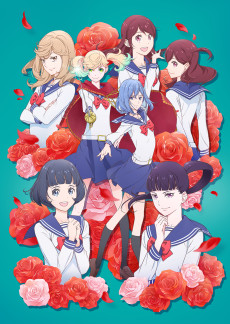 ANIME DramaKageki Shoujo!!
ANIME DramaKageki Shoujo!! ANIME DramaMawaru Penguindrum
ANIME DramaMawaru Penguindrum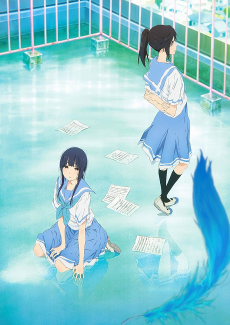 MOVIE DramaLiz to Aoi Tori
MOVIE DramaLiz to Aoi Tori
SCORE
- (4.35/5)
TRAILER
MORE INFO
Ended inJune 4, 2021
Main Studio Kinema Citrus
Favorited by 1,982 Users
Hashtag #スタァライト


